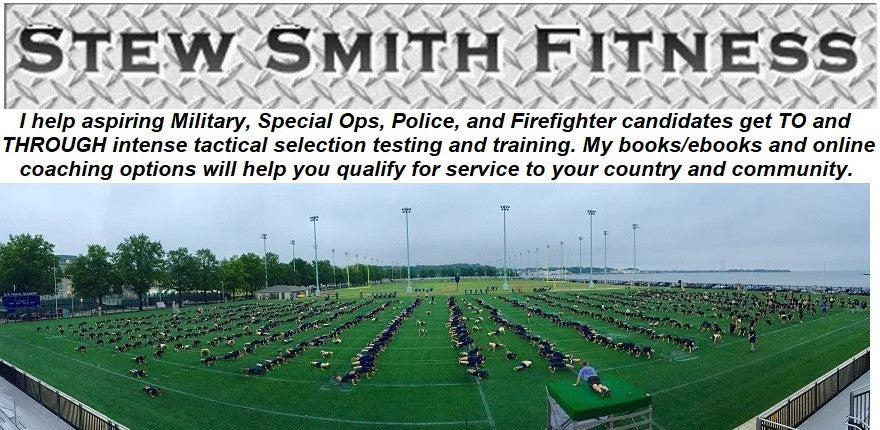This week I received an email from a soldier who writes:
Every time I take the PFT, I ace the PT part but my run is much worse than if I ran first. Does the PT take that much out of me that I cannot run my normal pace had I not done the PT first?
As with any test, you have to learn how to take tests to score better. There are entire schools and curricula devoted to helping students pass the SAT, ACT and even the ASVAB. The schools are not so much devoted to teaching subjects, but showing students HOW to score higher on the tests using strategy and techniques.
The Physical Fitness Test in any branch of service is the same. You need a strategy. For most PFTs, you have to do a series of upper body exercises first (usually pushups, situps, or pullups) then run for 1.5, 2, or 3 miles depending on the service branch.
After you perform maximum repetition sets with your upper body muscles, your heart has forced blood to the arms, shoulders, and torso leaving you very “pumped up”. Running like this can be difficult because the heart has to now pump the blood from your arms and torso down to your legs and, of course, oxygenate the blood repetitively.
When blood is “stuck” in the upper body as it is after a maximum repetition PT test, your heart pumps harder than normal, which can throw off your known pace that you have trained to maintain for your run. Your breathing is more rapid, your heartbeat is therefore more rapid, your arms swing is more stiff than fluid and relaxed, and your legs are burning for oxygenated blood. This will leave many to say at the end of the run, “I felt OK after the first two laps, but the first half mile about killed me.”
Here is the answer to the problem:
After you perform the PT test, take the time in between the upper body exercises to stretch the arms, chest, shoulders, stomach and lower back. Then run for about 2-3 minutes at an easy pace to get the blood down toward your legs. Finally, take about 3-5 minutes to stretch your legs. Keep shaking the arms, throughout the time in between the PT and run, to loosen up.
This will help you feel better at the start of your timed run and you will avoid feelings of breathlessness at your target pace. See the other running articles in the StewSmith.com Article Archive for ideas on increasing your speed and setting your goal pace.
Try the workouts listed in the Article Archive Guide on running:
Try the Interval Running Workouts taken from this link.
The workouts in the articles and eBooks on the StewSmith.com eBook store will help you lose weight, get faster, and score higher on the PFT. By combining all forms of exercise to practice your PFT strategy: strength building, cardio vascular activity, and flexibility as well as food intake prior to the PFT, you will be better prepared for the EVENT. Feel free to email me at stew@stewsmith.com for any fitness related questions.
